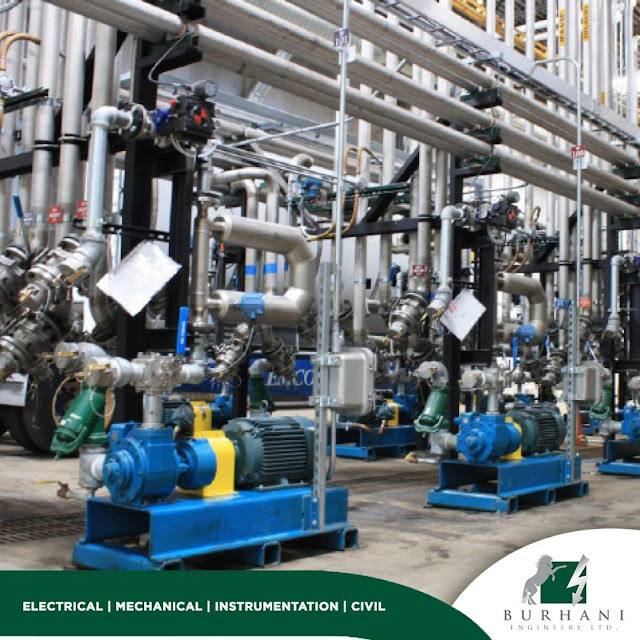Valve Maintenance Best Practices - From Leading Engineering Company in Nairobi, Kenya
To maintain optimal performance and reliability in valves, it is important to implement effective maintenance practices. Here, we share some of the best practices for valve maintenance, highlighting key steps and considerations to enhance the longevity and efficiency of valves in industrial applications.
- Regular inspection:
Regular inspection is fundamental to valve maintenance. Inspect valves periodically to identify signs of wear, leakage, corrosion, or any other issues that may affect their performance. Inspections should include examining the valve body, stem, seals, and actuators. Ensure that valves are properly aligned and securely mounted. Visual inspections can often detect early signs of problems, allowing for timely intervention.
- Lubrication:
Valves cannot function without proper lubrication. Apply suitable lubricants to valve stems, threads, and sealing surfaces to minimize friction and reduce wear. Use lubricants compatible with the valve materials and the process fluids. The best place to look for recommendations regarding type of lubricants and interval of lubrication is the manufacturer’s guidelines.
- Preventive maintenance:
Implementing a preventive maintenance program can significantly extend the lifespan of valves. Develop a maintenance schedule that includes regular cleaning, lubrication, and adjustment of valves. Identify critical valves that require more frequent inspections and maintenance. Keep detailed records of maintenance activities, including dates, tasks performed, and any observations or repairs made. This documentation helps track valve performance and aids in future maintenance planning.
- Leak detection and repair:
Valve leaks can lead to process inefficiencies, safety hazards, and increased operational costs. Regularly check valves for leaks by performing pressure tests or utilizing leak detection equipment. Promptly repair any identified leaks, which may involve replacing worn seals, gaskets, or valves themselves. Consider utilizing advanced leak detection technologies, such as ultrasonic leak detectors, to identify leaks in valves that are not easily visible.
- Valve exercising:
Valve exercising involves periodically operating valves through their full range of motion. This practice helps prevent valve sticking, ensures that valves operate smoothly, and prevents the buildup of contaminants. Regularly exercising valves is particularly important for valves that are infrequently operated or located in corrosive or harsh environments.
- Calibration and adjustment:
Valve calibration and adjustment ensure accurate control of flow rates and pressure. Periodically calibrate valves to verify their opening and closing positions, as well as their response to control signals. Adjust valve settings as needed to align with process requirements. Proper calibration and adjustment help optimize valve performance and minimize energy consumption.
- Documented procedures and spare parts:
Maintain a comprehensive set of documented valve maintenance procedures. These procedures should include step-by-step instructions for routine maintenance, troubleshooting common issues, and guidelines for repairs or replacements. Also, establish an inventory of spare parts specific to the valves in use. Having readily available spare parts can expedite maintenance activities, reducing downtime in case of valve failure.
Looking for valve rehabilitation services in Nairobi?
Explore Burhani Engineers LTD Nairobi. They have one of the first valve rehabilitation offering fully-equipped workshops in Nairobi. They have expert technicians who test several aspects of valves, including their flow, pressure and safety. Besides rehabilitation of old valves, they are also suppliers of new ones. You can buy valves that fulfil your specific requirements from their diverse options.
Burhani Engineers Ltd also offer
engineering solutions across various domains, such as mechanical, electrical
and civil. You can get in touch with them for
assistance in such regards as well.



Comments
Post a Comment